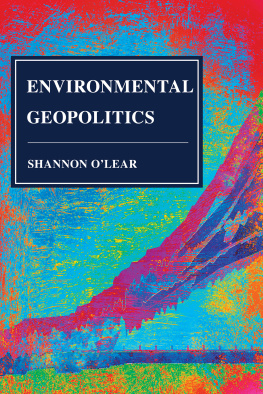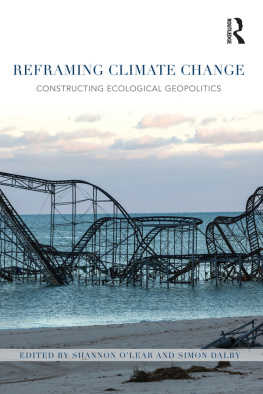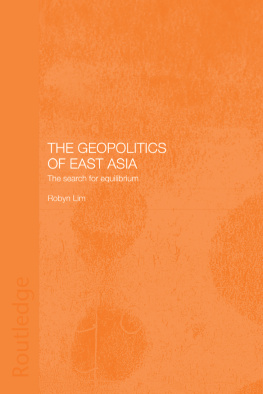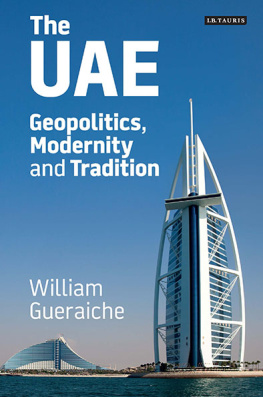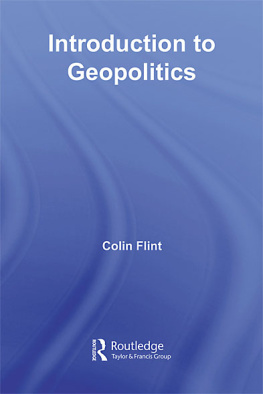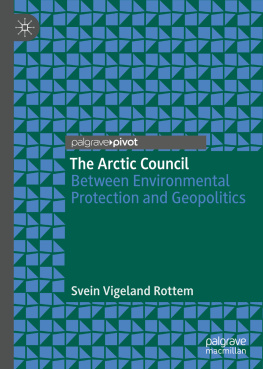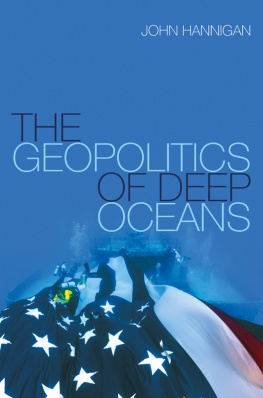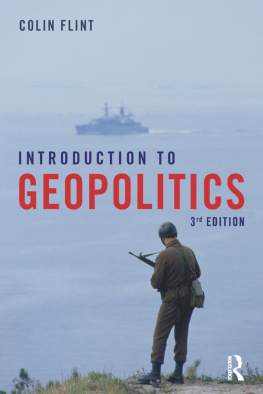OLear - Environmental Geopolitics
Here you can read online OLear - Environmental Geopolitics full text of the book (entire story) in english for free. Download pdf and epub, get meaning, cover and reviews about this ebook. year: 2018, publisher: Rowman & Littlefield Publishing Group, Inc., genre: Politics. Description of the work, (preface) as well as reviews are available. Best literature library LitArk.com created for fans of good reading and offers a wide selection of genres:
Romance novel
Science fiction
Adventure
Detective
Science
History
Home and family
Prose
Art
Politics
Computer
Non-fiction
Religion
Business
Children
Humor
Choose a favorite category and find really read worthwhile books. Enjoy immersion in the world of imagination, feel the emotions of the characters or learn something new for yourself, make an fascinating discovery.
Environmental Geopolitics: summary, description and annotation
We offer to read an annotation, description, summary or preface (depends on what the author of the book "Environmental Geopolitics" wrote himself). If you haven't found the necessary information about the book — write in the comments, we will try to find it.
OLear: author's other books
Who wrote Environmental Geopolitics? Find out the surname, the name of the author of the book and a list of all author's works by series.
Environmental Geopolitics — read online for free the complete book (whole text) full work
Below is the text of the book, divided by pages. System saving the place of the last page read, allows you to conveniently read the book "Environmental Geopolitics" online for free, without having to search again every time where you left off. Put a bookmark, and you can go to the page where you finished reading at any time.
Font size:
Interval:
Bookmark:
Environmental Geopolitics
Shannon OLear
University of Kansas
ROWMAN & LITTLEFIELD
Lanham Boulder New York London
Executive Editor: Susan McEachern
Editorial Assistant: Katelyn Turner
Senior Marketing Manager: Kim Lyons
Published by Rowman & Littlefield
An imprint of The Rowman & Littlefield Publishing Group, Inc.
4501 Forbes Boulevard, Suite 200, Lanham, Maryland 20706
www.rowman.com
Unit A, Whitacre Mews, 26-34 Stannary Street, London SE11 4AB, United Kingdom
Copyright 2018 by The Rowman & Littlefield Publishing Group, Inc.
All rights reserved . No part of this book may be reproduced in any form or by any electronic or mechanical means, including information storage and retrieval systems, without written permission from the publisher, except by a reviewer who may quote passages in a review.
British Library Cataloguing in Publication Information Available
Library of Congress Cataloging-in-Publication Data
Names: OLear, Shannon, author.
Title: Environmental geopolitics / Shannon OLear.
Description: Lanham : Rowman & Littlefield, [2018] | Series: Human geography in the twenty-first century issues and applications | Includes bibliographical references and index.
Identifiers: LCCN 2017058547 (print) | LCCN 2018002704 (ebook) | ISBN 9781442265820 (electronic) | ISBN 9781442265806 (hardcover : alk. paper) | ISBN 9781442265813 (pbk. : alk. paper)
Subjects: LCSH: Political ecology.
Classification: LCC JA75.8 (ebook) | LCC JA75.8 .O638 2018 (print) | DDC 304.2dc23
LC record available at https://lccn.loc.gov/2017058547
 The paper used in this publication meets the minimum requirements of American National Standard for Information SciencesPermanence of Paper for Printed Library Materials, ANSI/NISO Z39.48-1992.
The paper used in this publication meets the minimum requirements of American National Standard for Information SciencesPermanence of Paper for Printed Library Materials, ANSI/NISO Z39.48-1992.
Printed in the United States of America
This book is dedicated to those willing to read it with an open mind.

Acknowledgments
The ideas in this book are the fruits of both focused pursuit and unplanned, intellectual adventures. I am grateful for my interactions with people over the years who have been part of both of these tracks: teachers, professors, mentors, tormentors, colleagues, friends, and family. Many thanks to the students, both undergraduate and graduate, with whom Ive worked over the years for your questions, your effort, your resistance, and your perspective. I am fortunate to have appointments and thoughtful colleagues in the Geography and Atmospheric Sciences Department and in the Environmental Studies Program here at the University of Kansas. Thanks are due to Susan McEachern at Rowman & Littlefield for shepherding this project forward, and to Barney Warf, also with Rowman & Littlefield and next door in Lindley Hall, for his unwavering support and hearty good humor.
Chapter One

Introduction to Environmental Geopolitics
Look at the cover of this book again. Is the image familiar to you? You may recognize the lines of a well-known graphic showing how scientific projections for increased greenhouse gas emissions are associated with anticipated increases in global temperature. In this image, do you see reason to be concerned about the well-being of the planet? Or do you wonder how society might alter its course? How do we know if we are even using the right kinds of science to ask and answer questions that could affect not just us but other people and ecosystems around the planet?
An artistic interpretation of scientific information is a useful analogy for a central question of this book: What kinds of evidence and assumptions serve to stabilize our view of the world and, in particular, our understanding of human-environment relationships? When we think about ways in which we are connected to the environment, how do we imbue those relationships with power? That is, in what ways do we portray certain environmental features as posing a risk to our well-being? Or, at the other end of the spectrum, how do we understand some aspects of the environment as worth preserving or as providing some form of security?
Indeed, environmental issues often seem to be at the heart of both conflicts and security these days. In popular media and scholarly research, environmental aspects of political tension issues are a frequent focus and concern. Many armed conflicts are understood to be linked to resources, such as diamonds, oil, or water; there are ongoing debates over various benefits or costs of energy systems based on oil, coal, wind, and solar energy; supplies of natural resources are thought to be dwindling under the demand of a growing human population; predictions of unstable water supplies and agricultural systems due to climate change are made; and the environmentwhether in terms of pollution, water and food availability, oil supply, and moreis increasingly portrayed as a security concern. On the flip side, environmental features are also discussed as being fraught with risk and posing threats to our well-being. People, including scholars, often perpetuate broad assumptions about environmental concerns. For instance, the presence of a resource (such as oil or diamonds) or a scarcity of a resource (such as food or water) at a particular location is often assumed to drive violence or conflict in that place. Poverty may be singled out as the reason why people make environmentally destructive decisions. An influx of people to a certain place may be assumed to have only negative consequences for the environment. These kinds of assumptions or discourses about human-environment relationships tend to be universalizing. That is, they are often assumed to be truths that fit all situations and may be used to justify certain actions. Such discourses may serve to maintain an unjust status quo instead of questioning the arrangements of power that have contributed to current circumstances. Discourseswhat they are and how we can examine themare discussed in more detail later in this chapter.
An initial definition of environmental geopolitics is that it is an approach to examining how environmental themes are used to support geopolitical arguments and realities. It asks how the environment is brought into narratives, practices, and physical realities of power and place. Geographers study places, patterns, and processes across human and physical realms. Political geographers examine dimensions of power as it shapes and is shaped by place and spatial patterns and processes. As a subfield of political geography, environmental geopolitics encourages reflection on how particular aspects of the nonhuman environmentmineral resources, weather patterns, arable land, ecosystem services, and moreare understood, represented, and portrayed in terms of spatial aspects of risk or security. Instead of taking arguments about food shortages, resource conflicts, or climate security, for instance, at face value, environmental geopolitics investigates how food, resources, and climate are identified, made distinct, measured, and portrayed as something, somewhere, to be secured or that pose a particular threat requiring a response. It is a practice of clarification and examining how alternative interpretations and realities could also be viable. In this way, environmental geopolitics is a project to think otherwise about the kinds of power shaping the places, patterns, and spatial processes of the world today. Of course, this definition of environmental geopolitics offers an introduction to the approach and contents of this book, but it is also a starting point for further dialogue about what we mean by environment, what we think of as geopolitics, and how we can usefully understand relationships connecting them.
Next pageFont size:
Interval:
Bookmark:
Similar books «Environmental Geopolitics»
Look at similar books to Environmental Geopolitics. We have selected literature similar in name and meaning in the hope of providing readers with more options to find new, interesting, not yet read works.
Discussion, reviews of the book Environmental Geopolitics and just readers' own opinions. Leave your comments, write what you think about the work, its meaning or the main characters. Specify what exactly you liked and what you didn't like, and why you think so.

